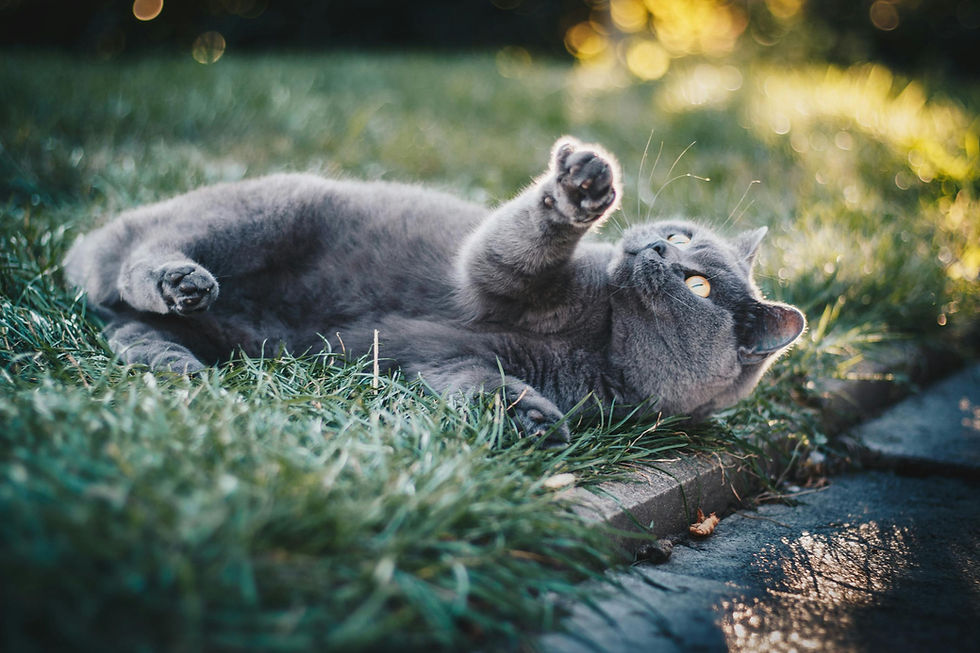Use Premium Cat Food and Avoid Toxic Ingredients
- Snappy Tom Pet Supply
- Jan 2, 2021
- 2 min read

We recommend always using a premium, all-natural cat food to nourish your cat at a deep level - and always make sure you never feed the following items to your cat.
CAFFEINE OR CHOCOLATE
While most people know by now not to feed cocoa products to dogs, it is equally toxic for felines (although dark chocolate is more deadly than milk or white chocolate). The dangerous substances are known as ‘methylxanthines’ and can lead to runny stools, diarrhea, hyperthermia, tremors, heart palpitations, GI discomfort, excessive thirst, and possibly even seizures. These toxic alkaloids are also present in other caffeine containing foods (such as coffee, energy drinks, etc.) and should never be given to your cat.
BONES, UNCOOKED EGGS/MEAT
Although less likely than with humans (due to the high pH of their intestinal tract) feeding your cat raw meat or eggs can give them a dangerous dose of salmonella or E. Coli. Symptoms of microbial infections in your cat can include fatigue, runny stools, and vomiting. These bacteria can also be contagious to humans - so make sure to always follow proper hygiene procedures when handling raw meat. Additionally, uncooked eggs are home to an enzyme that could contribute to skin and hair problems for your kitten. Bones can splinter, causing damage to your cat’s teeth and digestive tract - or even cause them to choke.
DAIRY PRODUCTS
While you may see milk as a way to reward your cat for being good, in reality dairy products are generally not good for cats. Dairy can cause an upset stomach or runny stools. Cats usually receive lactose from breast milk when they are kittens, but after that it can be difficult to digest. Some cats may still digest milk without much issue, but it’s still a good idea to refrain from giving dairy products if at all possible.
ONIONS AND GARLIC
Allium vegetables are highly toxic to felines, and should never be found in premium cat food. Usually these foods are only worrisome when your cat eats them in high quantities, but a concentrated dose (such as from garlic powder) can damage red blood cells in your cat’s body and potentially cause anemia. Symptoms of poisoning include a weak appetite, fatigue, pale gums, and dark red/orange pee - if you notice any of these, take your cat to the veterinarian right away.
RAW DOUGH
Raw dough can create dangerous expansion and alcohol in your cat’s stomach - avoid causing your cat this kind of painful discomfort.
GRAPES OR RAISINS
Although grapes and raisins are delicious, they unfortunately have a tendency to make cats very ill - possibly even causing kidney failure very quickly. Symptoms that can manifest in the first day after your cat eats a grape or raisin include GI discomfort, inability to urinate, fatigue, hyperactivity, vomiting repeatedly, and runny stools. Some cats experience no negative symptoms after eating grapes and raisins, but it’s better to be safe than sorry.







Comments